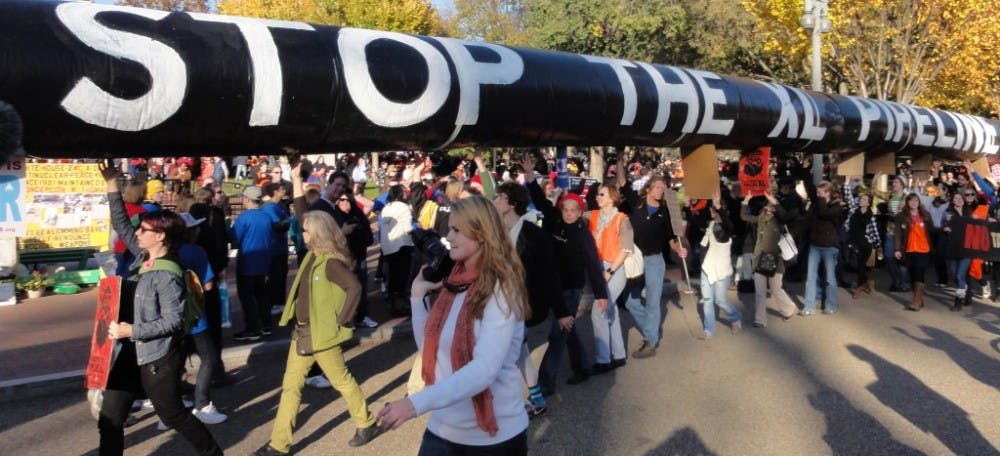The payoffs are minimal and the risks are incalculable, at least for the United States. But for TransCanada, the Canadian company in charge of the Keystone Pipeline, the project has sizable value.
There’s a lot of misinformation surrounding the Keystone Pipeline. In fact, the ongoing debate doesn’t even concern the pipeline. The first phase of the pipeline has been operational since 2010, running more than 2,000 miles through two Canadian provinces and six U.S. states. The debate is actually about the Keystone XL, an appropriately named addition that would add 700 miles to the original pipeline.
On the surface, the project seems like a welcome source of work for Americans.
TransCanada hired The Perryman Group, a Texas-based financial analysis firm, to demonstrate the benefits of the Keystone XL. The study concluded construction of the pipeline would create more than 119,000 jobs and bring 1.1 million barrels of oil to the United States daily.
This sounds promising, but the study was funded entirely by TransCanada. Cornell University researchers conducted their own study and found drastically different results.
TransCanada reported the project budget to be more than $7 billion. In reality, the KXL budget is somewhere between $3 billion and $4 billion. This decreased budget means fewer jobs and less money injected into the U.S. economy. Even the steel pipes used to construct the pipeline would be built abroad, displacing American workers from another facet of the production process.
The U.S. State Department concluded the project would only create around 5,000 temporary jobs. This is hardly the surplus of American labor we’re looking for.
But with gas hovering around $4 a gallon, it makes sense that a pipeline running directly through the center of the country would decrease U.S. gas prices, right? Wrong.
[quote]The KXL isn’t intended for U.S. consumption. It’s intended to avoid the United States entirely, bisecting the country to reach the Gulf of Mexico and its foreign trade zones. TransCanada can process and sell the oil internationally and avoid U.S. taxes. [/quote]
But most importantly, there’s an environmental cost. The KXL runs directly over the Ogallala Aquifer, one of the largest aquifers in the world. An oil spill at any point along the pipeline would ravage the primary source of drinking water for more than 2.3 million Americans. The potential damage to our ecosystem makes the KXL financially imprudent and downright catastrophic.
So the question remains: What needs to be done? We need to shut it down.
According to Cornell’s study, 2.7 million jobs have already been added from renewable energy and the potential for many more exists. Solar power, geothermal energy and windmills can provide these same jobs and energy and, at the very least, they won’t kill us.


